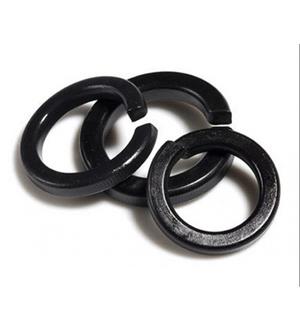Understanding the Specifications and Dimensions of Self-Tapping Screw Measurement Manufacturers
Understanding Self-Tapping Screw Measurement and the Role of Manufacturers
Self-tapping screws are widely used fasteners designed to create their own hole as they are driven into materials, specifically in metal and plastic applications. Unlike traditional screws that require a pre-drilled hole, self-tapping screws simplify the fastening process and save significant time during assembly. However, ensuring the correct measurement of these screws is crucial for their effectiveness, durability, and overall performance. In this article, we will delve into the importance of self-tapping screw measurement and the role of manufacturers in producing high-quality fastening solutions.
Importance of Accurate Measurement
Accurate measurement of self-tapping screws is fundamental for several reasons. First and foremost, the size of the screw must match the specifications of the application to ensure a secure and reliable fit. An oversized screw can lead to material damage, while an undersized screw may not provide adequate grip, resulting in structural failure.
Furthermore, the pitch, which is the distance between adjacent threads, plays a significant role in how well the screw engages with the material. A finer pitch may offer better holding power in softer materials, whereas a coarser pitch is often more suitable for harder materials. Manufacturers need to adhere to precise measurements to cater to diverse applications and ensure that the screws function optimally in various environments.
Measurement Standards
Manufacturers of self-tapping screws typically adhere to specific measurement standards set by organizations such as the International Organization for Standardization (ISO) and the American National Standards Institute (ANSI). These standards provide guidelines on dimensions, tolerances, and material specifications. Following these standards is essential for manufacturers to produce self-tapping screws that meet industry quality requirements and are interchangeable in various applications.
The diameter, length, and head style are key dimensions that need to be meticulously measured during the manufacturing process. Whether the screw features a pan, flat, or hex head, each design serves different purposes and requires appropriate dimensioning for effective use. Additionally, the thread design, which can be sharp or blunt, affects how well the screw penetrates the material and engages with it.
self tapping screw measurement manufacturers

Quality Control in Manufacturing
To ensure the precision of measurements, manufacturers implement rigorous quality control processes. This usually involves using advanced measurement tools such as calipers, micrometers, and coordinate measuring machines (CMM). These instruments help assess the physical dimensions of screws at various stages of production.
Manufacturer training is equally crucial, as skilled technicians must understand the significance of precision measurement in creating reliable fastening solutions. Continuous monitoring and adjustment of machinery are required to maintain consistent quality and minimize variations in screw dimensions.
Challenges in Manufacturing
Despite the importance of accurate measurements, manufacturers often face challenges in the production of self-tapping screws. Material inconsistencies, wear and tear on machinery, and variations in environmental conditions can all impact the final product. Furthermore, as industries evolve and demand for custom solutions increases, manufacturers are challenged to balance precision with the ability to produce diverse sizes and styles of screws.
Conclusion
In conclusion, the measurement of self-tapping screws is a critical aspect that significantly influences their performance in various applications. Manufacturers play a vital role in ensuring these measurements meet rigorous standards through quality control and adherence to industry guidelines. By investing in precision measurement techniques and continuous training, manufacturers can deliver reliable and effective fastening solutions to meet the diverse needs of their clients. As industries continue to expand and evolve, the importance of accurate self-tapping screw measurement will remain a cornerstone of quality manufacturing practices.
-
Top Choices for Plasterboard FixingNewsDec.26,2024
-
The Versatility of Specialty WashersNewsDec.26,2024
-
Secure Your ProjectsNewsDec.26,2024
-
Essential Screws for Chipboard Flooring ProjectsNewsDec.26,2024
-
Choosing the Right Drywall ScrewsNewsDec.26,2024
-
Black Phosphate Screws for Superior PerformanceNewsDec.26,2024
-
The Versatile Choice of Nylon Flat Washers for Your NeedsNewsDec.18,2024










